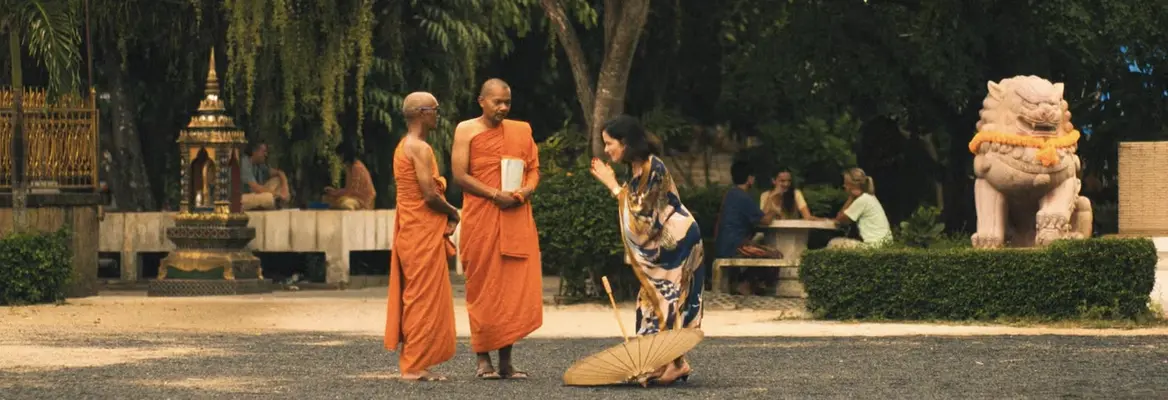What did we do, in some past life, to deserve the karmic force that is the TV show The White Lotus? This show goes beyond watching for pleasure, ‘hate-watching’, or watching while we scroll on our phones… this is anxiety as entertainment. Philosopher Dylan Skurka argues The White Lotus refuses to deliver the catharsis we crave. Instead, he argues, we should embrace what the Buddhists call emptiness. For ourselves, as well as for the guests at the White Lotus, it’s our attempts to escape the nothingness at the heart of everything that most often leads to our most profound suffering.
Karma’s a b****. Karma’s a saint. Karma is many things, but karma isn't the mysterious cosmic scoreboard it’s often assumed to be. The Sanskrit word simply means ‘deed’ or ‘action,’ as predictable as rain drops splashing in a puddle. What makes karma interesting is not the act itself, but the cognitive dissonance that often facilitates it — that jarring human blindness to cause and effect. Should we really be surprised when people who live in deceit, greed, and cruelty eventually find themselves swallowed by those very forces? No, but more often than not, for some reason, we are. The White Lotus has always been a deliciously sardonic study of this blindness, but its third season — set against the cinematic backdrop of Thailand — escalates the theme to almost surreal proportions. Here, karma isn’t supernatural justice; it’s the simple, unrelenting weight of actions meeting their consequences.
In Buddhism, suffering is said to stem from desire. The remedy, then, is to recognize desire, meditate on it, and let it pass. Financial constraints often take care of this for you: I may really want a Porsche 911, but I’m never going to afford one, so I’m going to have to make do with my old Toyota Corolla — the suffering of not getting what I want will eventually fade. But if extreme wealth multiplies desire, The White Lotus asks, doesn’t that mean extreme wealth multiplies suffering as well?
___
In a crippled attention economy, where we anxiously swipe through content and expect instant gratification as though it were our birthright, The White Lotus turns the frustration of unfulfilled desires into an aesthetic — it dares us to sit with our own stunted patience, our addiction to more and more as fast as possible.
___
This time around, the hotel guests we meet are Tim and Victoria Ratcliffe and their three kids: their eldest son Saxon, daughter Piper, and their youngest son Lochlan. Middle-aged Rick arrives with much younger Chelsea; and a seasoned television actress, Jaclyn Lemon, brings along her two childhood friends, Kate and Laurie, for some vacation fun. An obnoxious family, a sugar daddy with his muse, and an aging girls' trip? As stereotypical as it gets, you might think; but we should all know by now that if anything, the White Lotus is a place where stereotypes get subverted.
And what better country for this unraveling than Thailand? A land where suffering and indulgence exist side by side, each feeding off the other. Where ascetic chants meet the neon glow of grotesque sexual misadventure. Where brooding Baptists, numb on enough lorazepam to wipe out the entire Thai army, stumble through gilded hotel lobbies. Where the menacing spectre of danger and crime lingers over postcard-perfect beaches like an approaching monsoon. Here, every hotel guest is chasing something—sex, power, enlightenment—until their paths inexorably collide, and somebody pays the ultimate price, bringing to life with dark irony what Martin Heidegger once called running towards death.





















Join the conversation